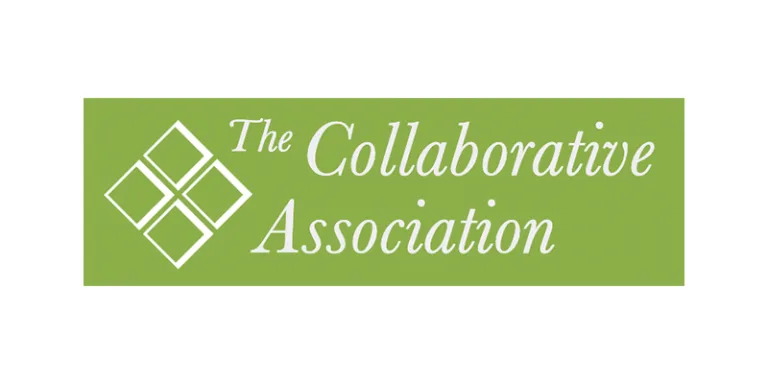
Once you’ve hired lawyers and filed papers in court, there’s no going back to alternative dispute resolution options.
Going to court is just one way to resolve a legal problem. There are other ways that can be cheaper, faster, and more effective. They often require you to be more involved and willing to compromise. Here, we explain common alternative dispute resolution options and situations where they might fit best.
What you should know
Courts are often slow and expensive, sometimes costing more than the problem is worth. Also, court proceedings are open to the public; you won’t be able to keep the details private.
Alternative dispute resolution is an umbrella term to describe alternatives to going to court. These options often work best at an early stage of a dispute. Once you become stuck or entrenched in your positions, and ignore the common interests you may have, it’s harder to reach a solution you can both accept. Here are a few examples where you can avoid going to court:
A property owner wants to put up a new fence. They think they know where the property line is, but don’t check before they start building. Their neighbour complains that the fence encroaches on their property. The parties negotiate and come to an agreement both can live with. They’ll get a survey done and if the fence encroaches, give the neighbour that built the fence the option to rebuild it or compensate the other neighbour at an agreed amount.
Three siblings are acting as co-executors of their late mother’s will. The estate has many assets, and dividing them up according to the will’s wishes is not straightforward. The siblings each have strong opinions; they can’t move forward. They decide to hire a mediator to help bring them together and coach them toward a solution.
A marriage of 15 years is coming to an end. The couple is at odds over parenting rights, child support payments, and how to split up their assets. They don’t want the case to drag out in court. Their lawyers engage in collaborative practice, communicating openly to steer their clients to a solution.
Two partners are excited that their business is starting to turn a profit. But they can’t agree on how they should be paid back for their past efforts. Their arguments have grown very testy; there’s no way they’ll agree to something without help. Instead of court, they decide to use arbitration to determine the outcome.
“Our shared fence was falling apart. I knew each property owner should split the costs of a new shared fence, but my neighbour and I don’t talk much, plus I wanted control over how it looked. So I got a new one built when they were out of town. They were very upset when they got back, claiming the fence was built on their property. We live in a tight knit community, so I didn’t want to get a lawyer involved, but I don’t quite know how to approach my neighbour about resolving this.”
– Sid, Abbotsford, BC

With negotiation the people in a conflict work out a solution to reach a compromise.
Negotiation happens every day. It’s probably something you often do, perhaps without even realizing it. (“If you unload the dishwasher, I’ll pick up the kids. Deal?”) But when the problem is between you and a stranger, or involves higher stakes, negotiation can take on a different tone. So before you start the negotiation, get prepared:
Describe the problem. Note any specific incidents and when they happened.
In a couple of sentences, write out why the problem is bothering you.
Put yourself in the other side’s shoes to see if you can understand their perspective.
Know what you’re willing to compromise on.
Identify common interests you and the other party share.
Try to think of solutions that may work for both of you.
Going in prepared will make you less anxious. Check out our tips for talking with a neighbour for more ideas — these ideas can apply to other types of disputes, too.
If confrontation just isn’t your thing, you can get someone to negotiate on your behalf. Lawyers do this all the time. If you want to hire a lawyer to negotiate for you, make sure you and the lawyer are aligned on how much you’re willing to spend on this first.
If you negotiate on your own, without a lawyer, consider signing an agreement saying your negotiations are “without prejudice.” This means neither of you can use your discussions against the other if the negotiation fails and you do end up in court.
“After mom died, there was a lot to take care of. My two siblings and I are now about halfway through the probate process, but we disagree on how to deal with the family home. Two of us want to sell; one of us wants to hold onto it. The will says we have to make decisions together, so we can’t just take a vote. Communication broke down. So we hired a mediator to help us get to an agreement. It was so helpful having a neutral person in the room; it really helped us see all perspectives.”
– Angela, Port Hardy, BC

In mediation, the people in a conflict meet with a neutral person (a mediator), who helps them find a solution they agree on.
The mediator doesn’t work for either party, or favour one party over the other. The mediator manages the process and organizes your discussions. They help clear up misunderstandings and reduce tension, so you and the other party feel comfortable sorting out your problems together. While the mediator helps people come to an agreement, they don’t decide for you, or force you to accept a solution.
Mediation works very well when the facts are clear, the people are in an ongoing relationship, and they want to protect their privacy. For example, mediation can be ideal for resolving family disputes, especially if there are children and the parties need to continue working together as parents.
Mediation works only if those involved are willing to resolve their dispute. It doesn’t work if one person isn’t interested in a possible compromise. In that case, court may be the only solution. Learn more about mediation.
“I won’t go into the details, but after 15 years together, divorce became our only option. That was just the first step, though. Dividing up assets, parental time, support payments … so much needed to be agreed upon before we could move on with our lives. We both didn’t want lawyers involved, but we also weren’t able to see eye to eye. We learned about collaborative practice, where lawyers take on the negotiating for you. It worked really well for us — we still had to pay the lawyers, but the bills were far less than if we’d gone to court.”
– Janice, Tsawwassen, BC

Hiring lawyers to avoid court? Seems counterintuitive, but in some situations, it works. Collaborative practice is a kind of negotiation where the parties seek an agreement that suits everyone, agree to disclose all relevant information, and commit to keeping their dispute out of the courts.
It’s most widely used in family disputes. Each party has their own lawyer, who agrees to only act for them in the collaborative process (and not if the matter ends up in court). The lawyers work to minimize conflict and reach an agreement. Communications are usually open and transparent.
Collaborative negotiation is an effective process for moving past conflict to resolution — even if you’ve tried other ways to come to an agreement. It also gives you emotional support and legal guidance. And it’s more private than going to court (court documents are public, but your collaborative agreement is not).
“Six years in, our startup began turning a profit. And new orders were rolling in. It was an exciting time. But my business partner and I were at odds about our past contributions and how we should be paid out for them. We wanted someone with business experience to hear both sides and make a decision. We found an arbitrator we both liked, set some ground rules together, and presented our case. I didn’t get everything I wanted, but the process felt fair and fast.”
– Sven, Vancouver, BC

With arbitration, the people in a conflict hire a neutral person (an arbitrator) to make decisions about their dispute they will be bound by. The arbitrator listens to the evidence each party presents and decides the issues. So, unlike mediation, the arbitrator will ultimately “rule” to determine the outcome.
Arbitration is less formal and more flexible than court. You and the other party agree in advance on the rules for the arbitration process. For example, you can both agree on a process that will allow the arbitrator to reach a decision on a limited budget, or whether each side can be represented by a lawyer.
Arbitration works well for commercial and business disputes. An arbitrator is often experienced with the type of dispute you have.
Before arbitration begins, you and the other person must decide if you can still go to court if you don’t like the arbitrator’s decision. This may depend on the law that applies to your situation. Usually, you cannot go to court later if you’re unhappy with the arbitration result. And sometimes, if there’s a written contract between those involved, it might require the parties to arbitrate rather than go to court.
Common questions
Yes, absolutely. Even if you go to court, you can still try alternative dispute resolution in most cases. After a lawsuit has started, parties often try to negotiate a settlement so they don’t have to go to trial. Or (if both parties agree) you could try mediation or arbitration before going further with a lawsuit.
If the issues are very complex, the dispute might benefit from the processes available in a lawsuit to, at an early stage, examine the documents and question the people involved. Again, this doesn’t mean you have to go all the way through to a final ruling — starting the court process can help you uncover facts that might make it easier to negotiate.
Who can help
Professionals who provide alternative dispute resolution include lawyers, social workers, and psychologists. When looking for a mediator or arbitrator, it’s important to work with a qualified and skilled professional experienced in the type of dispute resolution process you want to use.

ADR Institute of BC
Maintains a roster of qualified mediators and arbitrators who help with dispute resolution.

BC Legal Referral Service
Helps you connect with a lawyer, notary or paralegal for a free 15- to 30-minute consult to see if you want to hire them.

BC Collaborative Roster Society
Has a list of collaborative practice lawyers in the Lower Mainland, Island, and Interior regions.

The Collaborative Association
Features a list of participating collaborative professionals, including coaches and financial advisors, in the Fraser Valley Area.

Collaborative Family Separation Professionals
Maintains a list of collaborative practitioners in the Victoria area.


